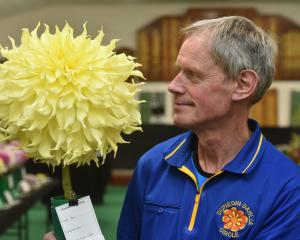Environmental, social and economic issues have to be balanced in making recommendations on minimum flow changes to Otago's water plan, hearing panel chairman Duncan Butcher says.
The panel's recommendations on change 1B to the regional plan for water were adopted by the Otago Regional Council's policy and resource planning committee yesterday.
Change 1B aimed to add minimum flow regimes and primary allocation limits for three catchments - Luggate, Trotters and Waianakarua - and add a new schedule of matters to be considered when setting minimum flows and primary allocation limits.
The changes attracted 71 submissions and hearings were held around Otago in July.
Cr Butcher said it was a good process which highlighted the need for minimum flows, not to restrict the ability of people to earn a living from water.
"We've stood by the recomm-endations that went out, except for the one change for Trotters Creek."
The panel, which also included councillors Louise Croot and Michael Deaker, had to make a decision between what was "utopia for fish" and for recreational users, and the community's needs for water.
"Hopefully, when the community gets it, it'll be reasonably happy with it."
Cr David Shepherd said the recommendations achieved significant balance between "utopia" and the needs and wants of the community.
Cr Bryan Scott said he hoped the council, by making the change, was not diminishing ecological values.
The panel's key recommendations included further clarification of the process for setting primary flows and allocation limits, and amending the primary minimum flow regime and primary allocation limit, as well as the supplementary allocation and flow regime proposed for the Trotters catchment.
The recommendations would be publicly notified on Saturday, October 31, and submitters would be notified.














